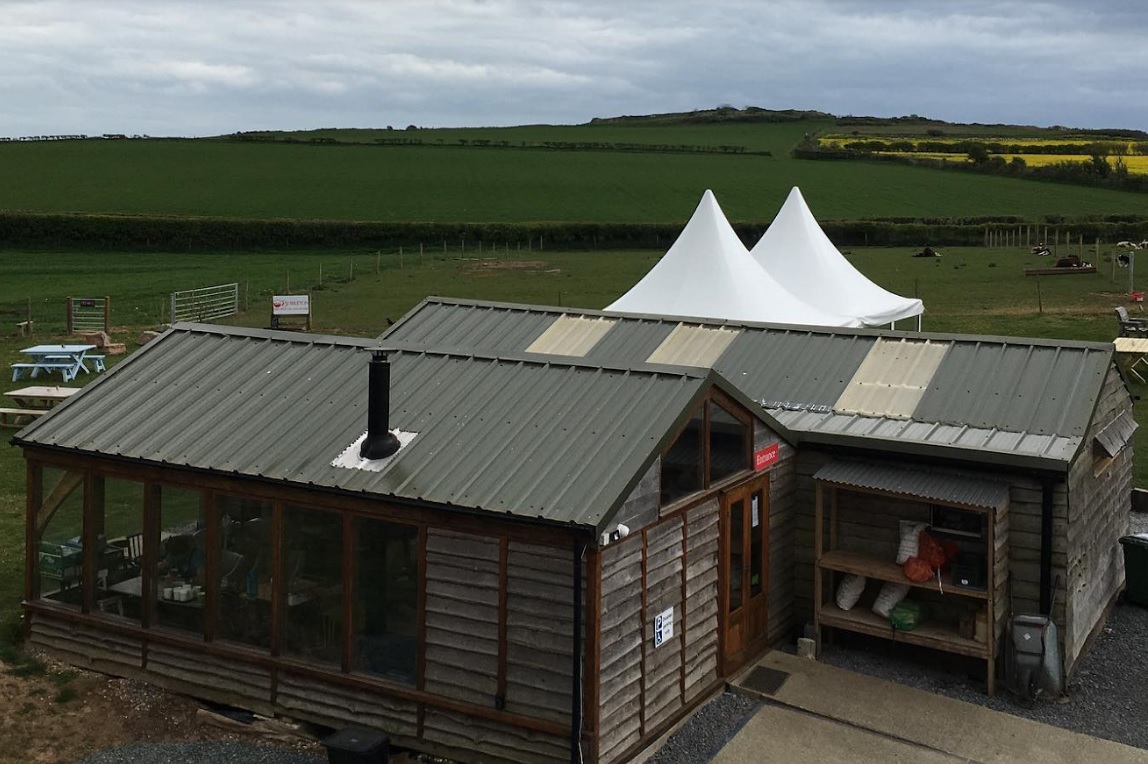News
Hours extension granted to farm shop

PEMBROKESHIRE COUNTY COUNCIL’S Licensing Sub-Committee approved an application to extend the opening hours of a farm shop and café in the tiny hamlet of Bubbleton, near Penally.
Meeting on Tuesday, April 27, the Committee considered an application made by Bubbleton Farm Ltd that would allow an extension to its licensing hours the café could provide further catering provision, including serving alcohol, until 10 pm at night.
None of the relevant statutory authorities, Dyfed-Powys Police and the Council’s environmental health department objected to the application.
The Committee accepted that, in the absence of specific observations from those bodies, it had to accept they were content with the application and believed it a routine matter that did not need their involvement.
Bubbleston Farm has a licence to serve alcohol during its regular opening hours every day between 9 am and 6 pm. It operates in accordance with those provisions and has done so for some time without incident.
Presenting the application for Bubbleton Farm Ltd, Thomas Evans told Committee members that the extension to hours sought was to meet demand and secure the future of the enterprise.
The extended hours did not mean, Mr Evans said, the location would host a bar every night of the week. The café needed to extend its licensing hours to allow the hosting of occasional events; for example, barbecues, at which alcohol could be legally served.
Questioned by the Chair of the sub-committee, Cllr Tim Evans, Mr Evans said that the last year of Covid restrictions had proven gruelling.
Mr Evans said there was increased local interest in attending outdoor catering events, such as those covered by the application.
There was evidence of a sophisticated local customer base who appreciated the chance to go to occasional barbecues outside their homes and have a drink with their food.
He explained the Farm’s planned to hold barbecues during the summer months and that each event would end before dusk.
Mr Evans continued to say the barbecues would be organised on a more-or-less ad hoc basis, depending on the weather. Details of an event would be circulated on social media in the three days leading up to one.
The Committee had two written objections.
The first objection came from a neighbour and expressed concern about the possibility of ‘late night revelry’ and the potential that, were music played, the quiet locality would become ‘a mini Glastonbury. A thought which the correspondent wrote, ‘fills us with horror’.
Asked to address the question of music being played at the premises, Thomas Evans could not recall asking for a live music licence. There was no indication of one being requested on the licensing officer’s report. Although the box was ticked on the application form the subsequent section was blank.
Mr Evans told members of the Committee he did not want a live music licence.
Recorded background music played during the day and current evening hours and that was enough. He explained with his own young children living on the Farm, he was mindful of potential disturbance and did not require a licence for live music.
The second letter of objection came from the non-resident owner of a nearby property.
That letter said: ‘Whilst I am not always present at the property (my wife and I share our time between the property and our primary residence in Berkshire), I am concerned that the proposed extension of the hours for the sale of alcohol will have a negative impact on the relative peace and tranquillity we enjoy at the property’.
The Committee members noted the objections, although neither objector was at the meeting.
Cllr Tim Evans noted the comprehensive way in which the applicant both prepared and presented its case.
After a brief retirement to consider its decision, the Committee approved the application.
Charity
Vincent Davies raises £13,682 for air ambulance charity

Independent Haverfordwest store backs lifesaving crews with year of community fundraising
A WEST WALES department store has raised more than thirteen thousand pounds for a lifesaving emergency service after a packed year of community fundraising.
Staff at Vincent Davies Department Store collected £13,682 for the Wales Air Ambulance Charity, after voting the organisation their Charity of the Year for 2025.
The independent retailer organised events throughout the year, including an Easter bingo, bake sales, quizzes, raffles, staff sales, Christmas jumper days and a festive wreath-making workshop. Charity jam jars placed in Café Vincent also helped gather steady donations from customers.
One of the most popular attractions was the store’s charity singing penguin trio, which drew smiles from shoppers of all ages and boosted collections.
Sarah John, Joint Managing Director at Vincent Davies, said: “Raising £13,682 for the Wales Air Ambulance Charity is something we are extremely proud of at Vincent Davies Department Store. As a director, it’s wonderful to see our community come together to support a charity that makes such a lifesaving difference.”
The air ambulance is consultant-led, delivering hospital-level treatment directly at the scene of serious incidents and, when needed, transferring patients straight to the most appropriate specialist hospital.
Working in partnership with the NHS through the Emergency Medical Retrieval and Transfer Service, crews can provide advanced critical care including anaesthesia, blood transfusions and even minor surgical procedures before reaching hospital.
Operating across the whole of Wales, its teams travel the length and breadth of the country by helicopter and rapid response vehicle to reach patients quickly in both rural and urban areas.
This is not the first time the Haverfordwest store has backed the cause. In 2016, staff previously raised £5,831 when the charity was also chosen as their beneficiary.
Mike May, the charity’s West Wales Regional Fundraising Manager, said: “We are so grateful to Vincent Davies Department Store for raising an incredible amount for our charity. Throughout the year they put on a variety of different events and what a successful fundraising year it was.
“The charity needs to raise £13 million every year to keep our helicopters in the air and our rapid response vehicles on the road. By raising £13,682, the staff and customers have played an important part in saving lives across Wales.”
The store says it will announce its Charity of the Year for 2026 in the coming weeks.
Crime
Police assess complaints over Mandelson–Epstein links

Met says allegations will be reviewed to see if criminal threshold is met following release of US court files
SCOTLAND YARD is reviewing a series of complaints alleging possible misconduct in public office after fresh claims emerged linking former UK ambassador Peter Mandelson to convicted sex offender Jeffrey Epstein.
The Metropolitan Police Service confirmed it has received “a number of reports” following the publication of millions of pages of material by the United States Department of Justice, and will now decide whether any alleged conduct reaches the level required for a criminal investigation.
Commander Ella Marriott said the force would assess each report individually, stressing that a review does not automatically lead to formal proceedings.
The documents, widely referred to as the “Epstein files”, appear to show Mandelson corresponding with Epstein while serving as business secretary during the government of Gordon Brown at the height of the global financial crisis.
According to reports, Epstein was allegedly given insight into internal policy discussions, including proposals around banker bonus taxes in 2009 and details of a eurozone bailout package shortly before it was announced publicly.
Payments questioned
Bank records cited in the US disclosure reportedly show payments totalling 75,000 US dollars made to Mandelson between 2003 and 2004. It is also claimed Epstein paid for an osteopathy course for Mandelson’s husband.
Mandelson has denied any wrongdoing and said he has “no record or recollection” of the alleged transfers.
On Sunday he resigned his membership of the Labour Party, saying he did not want his continued association to cause further difficulty for the party.
In interviews, he dismissed suggestions that Epstein influenced his decisions as a minister and said nothing in the released files pointed to criminality or misconduct on his part.
Pressure mounts
The political fallout has intensified, with Downing Street confirming Keir Starmer has asked Cabinet Secretary Chris Wormald to carry out an urgent review into Mandelson’s historic contacts with Epstein while in office.
Brown has also called for an examination of whether any confidential or market-sensitive information was improperly shared during the financial crisis.
The case is the latest in a series of controversies linked to Epstein’s long-standing relationships with powerful figures on both sides of the Atlantic.
Police emphasised that no charges have been brought and that Mandelson is not currently under criminal investigation, but said the complaints process would be handled “thoroughly and impartially”.
Community
Councillor meets chief constable to address Monkton and Pembroke concerns

COUNTY COUNCILLOR Jonathan Grimes has met with the new Chief Constable of Dyfed-Powys Police to discuss crime, antisocial behaviour and wider community issues affecting residents in Pembroke and Monkton.
Cllr Grimes, who represents Pembroke St Mary South and Monkton, said the meeting followed his invitation for senior police leaders to visit the area and hear first-hand about local concerns.
The Chief Constable, Ifan Charles, attended alongside officers from the Pembroke Neighbourhood Policing and Protection Team, meeting the councillor in Monkton for what were described as open and constructive talks.
As part of the visit, they also spoke with Monkton Priory Community Primary School headteacher Dylan Lawrence and Danny Nash from Pembrokeshire County Council Housing Services to gather views from education and housing professionals.
Discussions covered a range of issues raised by residents, including domestic abuse, drug and alcohol misuse, antisocial behaviour and environmental concerns such as littering, dog fouling and dangerous or inconsiderate driving.
Cllr Grimes acknowledged recent police successes, particularly in tackling drug-related activity, but said enforcement alone would not solve the area’s challenges.
He said closer cooperation between the police, council services, schools and the wider community would be needed to deliver longer-term improvements.
The councillor added that he plans to encourage residents to form a local community group in the coming weeks, aimed at developing practical solutions and strengthening partnership working across the area.
-

 Health5 days ago
Health5 days agoConsultation reveals lack of public trust in health board
-

 News6 days ago
News6 days agoCaldey still unsafe, survivors warn — despite Abbey’s reform claims
-

 Community6 days ago
Community6 days agoPembrokeshire students speak at national Holocaust Memorial Day event
-

 News6 days ago
News6 days agoKurtz raises Gumfreston flooding in the Senedd as petition deadline nears
-

 Crime7 days ago
Crime7 days agoMan denies murdering brother as jury hears of ‘ferocious attack’ at Morriston flat
-

 Entertainment7 days ago
Entertainment7 days agoRapunzel brings festive magic to Torch Theatre
-

 Community7 days ago
Community7 days agoStorm Chandra: Morning impacts across Pembrokeshire
-

 Education6 days ago
Education6 days ago‘Vulnerable teen’ questioned by police at Milford Haven School


























